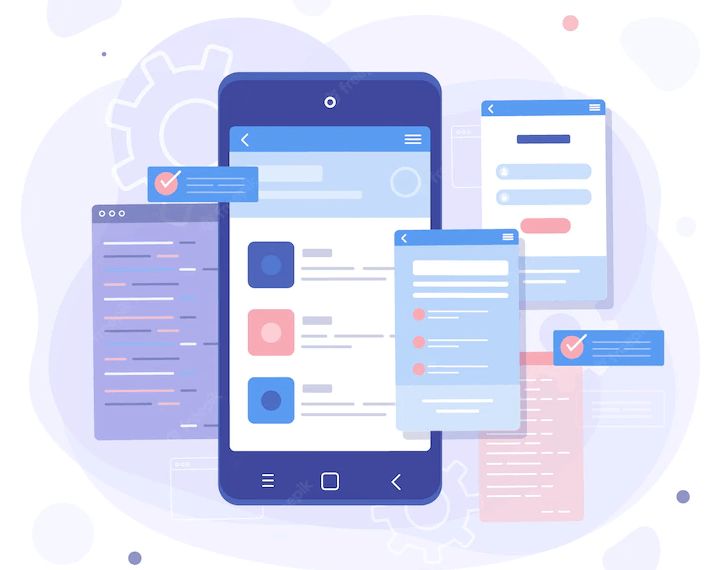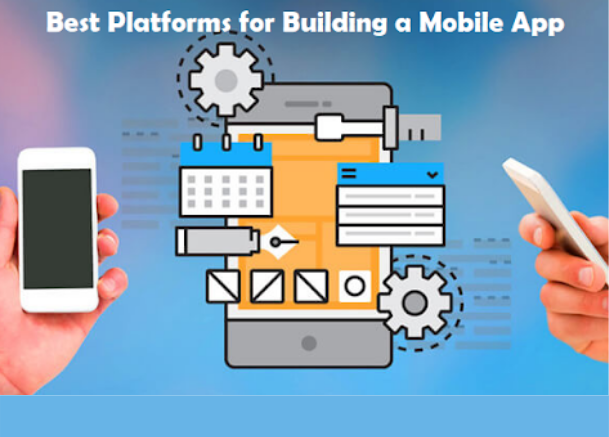Businesses and developers alike are constantly seeking ways to create high-quality mobile applications that are not only efficient but also cost-effective. This quest for efficiency has led to the rise of hybrid mobile app development platforms.
These platforms combine the best of both native and web app development approaches. In this blog post, we’ll explore the top hybrid mobile app development platforms to watch in 2023.
Contents
The Evolution of Hybrid Mobile App Development
Before diving into the platforms, let’s take a moment to understand what hybrid app development is and why it has gained so much attention in recent years.
Hybrid mobile apps are applications that combine elements of both native and web apps.
Native apps are developed for a specific platform (e.g., iOS or Android) using platform-specific languages (Swift, Kotlin, Java),
Hybrid apps are built using web technologies such as HTML, CSS, and JavaScript. These apps can run on multiple platforms, making them highly versatile.
The key advantage of hybrid apps is their ability to share a single codebase across different platforms, reducing development time and costs.
This approach also simplifies maintenance since updates and bug fixes can be applied universally.
Top Hybrid Mobile App Development Platforms
As hybrid app development gains more traction, several platforms have emerged to facilitate the creation of powerful cross-platform apps. Here are some of the top hybrid mobile app development platforms to consider in 2023:
1. React Native
React Native, developed by Facebook, remains one of the most popular choices for hybrid app development. It enables developers to build mobile apps using JavaScript and React, a popular JavaScript library for building user interfaces.
Key Features:
- React native development has strong community support and a vast ecosystem of libraries and plugins.
- Near-native performance, thanks to its ability to compile to native code.
- A “write once, run anywhere” philosophy, allowing developers to target multiple platforms with a single codebase.
2. Flutter
Flutter, backed by Google, is a relative newcomer that has gained rapid adoption in the development community. It uses Dart, a language developed by Google, and offers a unique approach to building user interfaces through its “widget” system.
Key Features:
- Fast development with hot reload, which allows developers to see changes instantly.
- Flutter development features a highly customizable and expressive UI framework.
- A growing community and extensive documentation.
3. Ionic
Ionic has been a popular choice for building hybrid apps for several years. It combines HTML5, CSS, and JavaScript to create visually appealing and performance apps.
Ionic development also provides a library of pre-designed UI components and a development framework known as Capacitor for native functionality integration.
Key Features:
- A wide range of pre-built UI components for faster development.
- Cross-platform compatibility with a single codebase.
- Integration with popular frontend frameworks like Angular and React.
4. Vue Native
Vue Native development is an adaptation of the popular Vue.js framework for building hybrid mobile apps. It allows developers to leverage their existing Vue.js skills to create cross-platform applications.
Key Features:
- Familiar Vue.js syntax and concepts for Vue developers.
- A smaller learning curve for those already proficient in Vue.js.
- A lightweight framework that focuses on simplicity and performance.
5. Xamarin
It is a Microsoft-owned platform, allows developers to build hybrid apps using C#. Xamarin development provides tools for sharing code across multiple platforms while offering deep integration with native APIs.
Key Features:
- A robust development environment within Visual Studio.
- Access to a wide range of libraries and components through NuGet.
- Excellent support for Windows app development in addition to iOS and Android.
Considerations When Choosing a Hybrid Mobile App Development Platform
While these platforms offer unique features and advantages, choosing the right one for your project requires careful consideration of several factors:
- Project Requirements:
Evaluate the specific needs of your project, including performance, scalability, and the need for native device features. - Development Team Expertise:
Consider the expertise of your development team. Some platforms may be a better fit based on their existing skills. - Community and Support:
A strong developer community and good documentation can significantly ease the development process. - UI/UX Requirements:
Different platforms may excel in different aspects of UI/UX design, so choose one that aligns with your app’s design goals. - Cost and Licensing:
Review the cost structure and licensing agreements associated with each platform to ensure they align with your budget.
Top Things to Consider When Choosing a Hybrid Mobile App Development Company
Selecting the right hybrid mobile app development company is a critical step in turning your app idea into a reality. Here are the key factors to consider when evaluating potential development partners:
-
Portfolio and Expertise
- Previous Projects:
Review the company’s portfolio to assess the quality and diversity of their previous work. Look for projects similar in scope and complexity to yours. - Industry Experience:
Consider whether the company has experience in your industry or domain. Familiarity with your industry can be a significant advantage. - Technical Expertise:
Evaluate the company’s proficiency with hybrid app development frameworks and technologies like React Native, Flutter, or others.
-
Client References and Reviews
- Client Testimonials:
Request references or testimonials from past clients. Reach out to these clients to get insights into their experiences working with the company. - Online Reviews:
Check online review platforms, such as Clutch or Upwork, for client feedback and ratings. This can provide additional perspective on the company’s reputation.
-
Development Process and Methodology
- Project Management:
Inquire about the company’s project management methodology. Are they agile, waterfall, or follow a customized approach? Ensure it aligns with your project’s needs. - Communication:
Assess how the company communicates and collaborates with clients. Clear and transparent communication is crucial for project success. - Timeline and Milestones:
Discuss project timelines, milestones, and delivery schedules. Make sure they can meet your project’s deadlines.
-
Development Team
- Team Composition:
Learn about the expertise and composition of the development team. Are there skilled developers, UI/UX designers, and quality assurance specialists on board? - In-House vs. Outsourcing:
Ask whether the company relies on in-house talent or outsourced development. In-house teams often provide better control and quality. - Scalability:
Ensure the company has the capacity to scale the team as your project grows or requires additional resources.
-
Cost and Budget
- Cost Structure:
Understand the company’s pricing model. Is it fixed-price, hourly rates, or based on project milestones? Ensure it aligns with your budget constraints. - Hidden Costs:
Clarify any potential hidden costs, such as licensing fees or ongoing maintenance charges, to avoid surprises later.
-
Security and Data Protection
- Data Handling:
Discuss how the company handles data security and privacy. Ensure they follow industry best practices and compliance standards. - Non-Disclosure Agreement (NDA):
Consider signing an NDA to protect your app idea and sensitive information during the development process.
-
Support and Maintenance
- Post-launch Support:
Inquire about the company’s post-launch support and maintenance services. Timely updates and bug fixes are essential for app longevity. - Service Level Agreements (SLAs):
Define clear SLAs to ensure you receive the level of support you need after the app goes live.
-
Legal and Contractual Aspects
- Contract Terms:
Carefully review the contract terms, including intellectual property rights, ownership of the source code, and termination clauses. - Payment Schedule:
Agree on a payment schedule that aligns with project milestones and deliverables.
-
Location and Time Zone
- Geographical Proximity:
Consider whether you prefer working with a local development company or if you are open to collaborating with a remote team. - Time Zone Compatibility:
Ensure that the time zone of the development team aligns with your preferred communication and collaboration hours.
-
Long-term Partnership
- Scalability:
Think about whether the company can support your app’s growth and future enhancements. - Innovation:
Assess their willingness and capability to adopt new technologies and trends to keep your app competitive.
Choosing the right hybrid mobile app development company is a pivotal decision that can significantly impact the success of your project.
Take the time to thoroughly evaluate potential partners, ask the right questions, and consider these key factors to make an informed choice.
A strong development partner can help bring your app vision to life and contribute to its long-term success.
Conclusion
As we enter 2023, hybrid mobile app development continues to be an attractive option for businesses and developers looking to create cross-platform applications efficiently.
The platforms mentioned in this blog post are just a few of the top contenders in the hybrid app development space.
Each has its strengths and unique features, making them suitable for different types of projects and development teams.
When choosing a hybrid mobile app development platform for your next project, carefully assess your requirements, consider the platform’s strengths and weaknesses, and leverage the strengths of your development team.
With the right choice, you can create high-quality hybrid apps that deliver a seamless user experience across multiple platforms, all while streamlining development efforts and reducing costs.













